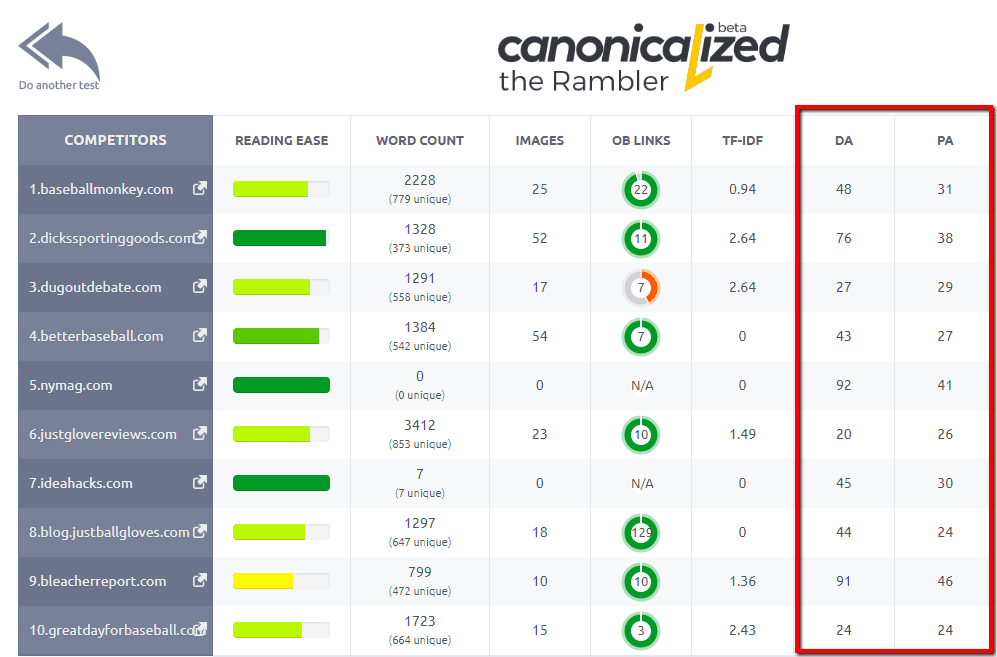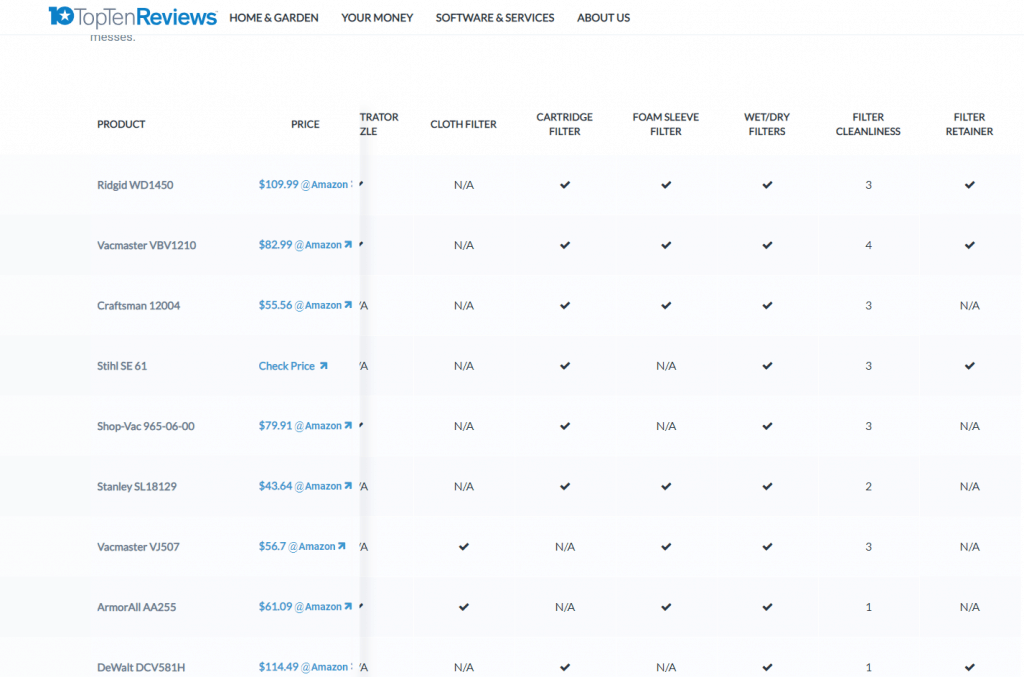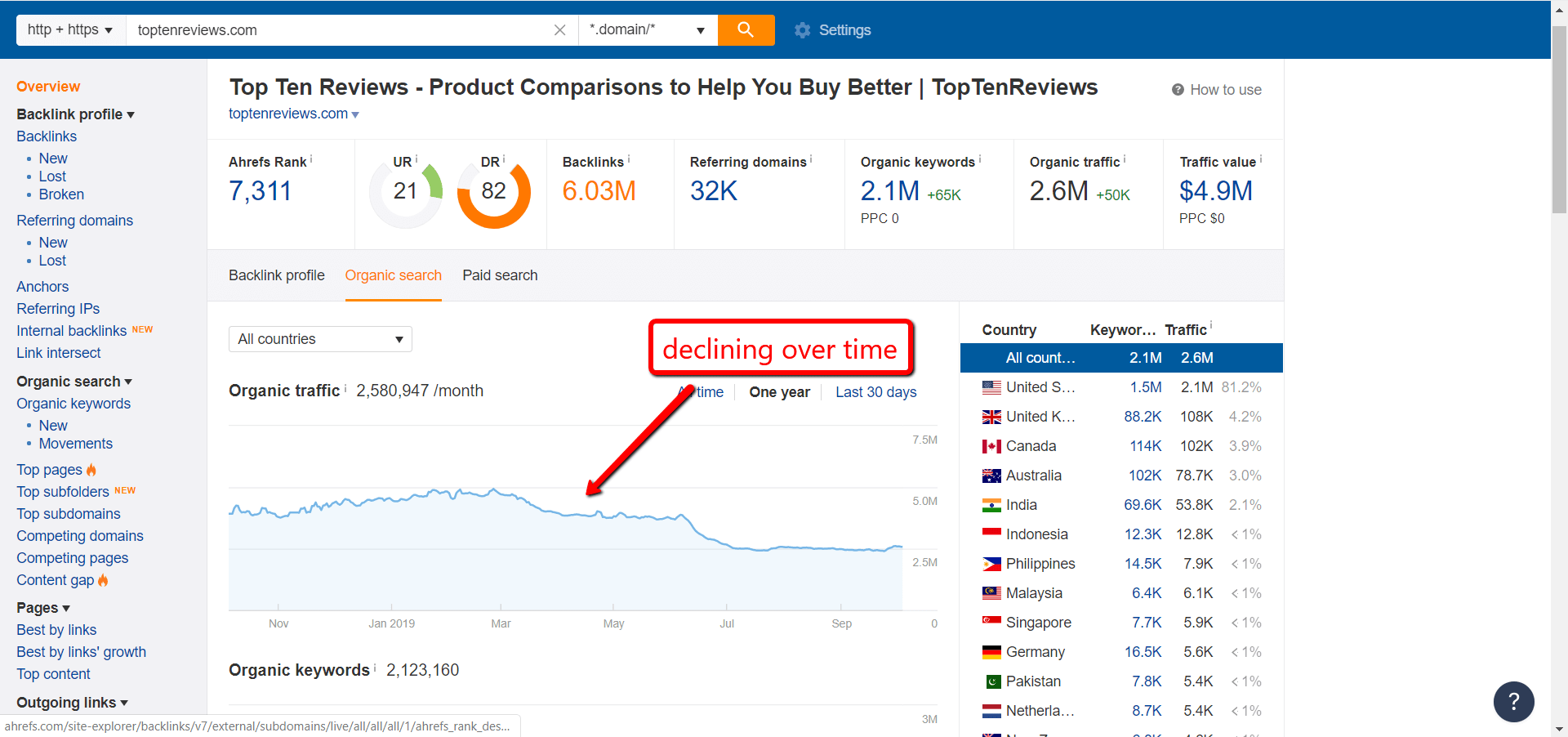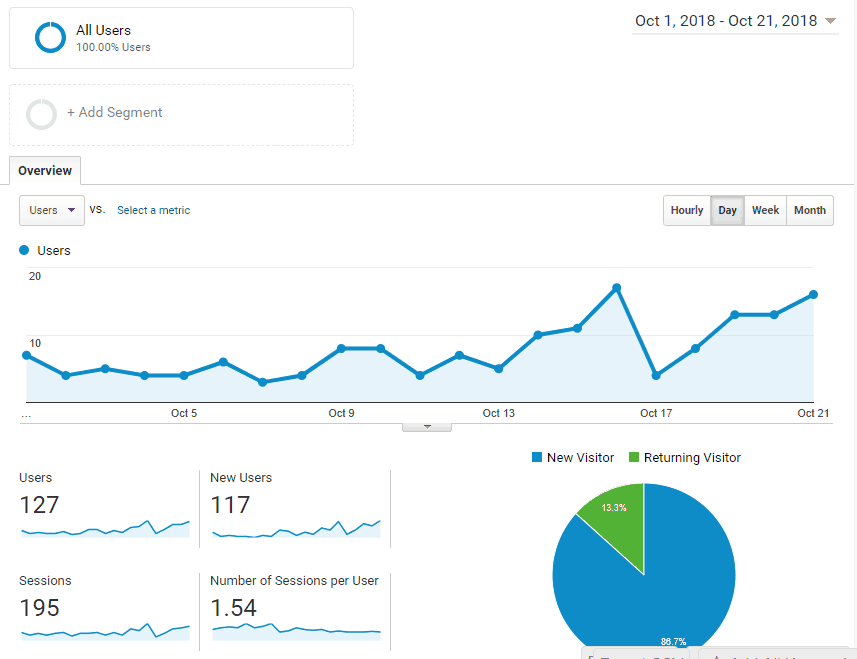How to Establish Topical Authority and Relevancy for SEO

When you buy something through one of the links on our site, we may earn an affiliate commission.
As part of the Niche Pursuits Podcast, I have the opportunity to interview people that are doing really well with their online businesses.
Two of my recent interviews have revealed something a bit surprising. Both of these guest essentially said that they feel like link building is dying or is less important. They both clarified that links are still important right now, but they feel like in the future links may not really matter that much.
One of these guests was Matt Giovinisci, and his pool site is doing over $25,000 a month. The other guest (his episode has yet to be released) is Deacon Hayes and his site is doing over $100,000 a month.
These 2 have HUGE sites that are powered primarily by Google Organic traffic, yet they both feel like links are becoming less important and may eventually be unimportant in the near future.
What?! How would Google rank pages?
Well, the answer is content depth and topical authority. SEO for Google is becoming more sophisticated and they understand what content is truly better to match the user query and intent.
As I've been building my new site for Niche Site Project 4, I've been concerned that my topic is too broad. So, throughout this post I'd also like to explain how I'm adjusting my strategy ever so slightly to make sure my site has topical relevance and establishes authority.
What is Topical Authority?
Topical Authority is the concept that you or your site is an established expert or authority over an entire topic as opposed to just one single keyword.
So, what site do you think has more topical authority for the term, “best baseball glove”? A site that does top 10 reviews on every product under the sun, or a site dedicated to the subject of baseball?
The answer is the baseball site of course. And this makes perfect sense. As a reader, if you truly want to hear the opinion of someone that knows about gloves, you'll talk to the baseball expert…not the person that builds a site of 5,000 random top 10 reviews.
Google wants to rank those sites that have the true topical authority on those subjects.
As proof, let's look at a couple of examples. Here's the baseball glove example. These are the top 10 sites for “best baseball gloves” (as shown on SEO Rambler).

Ignore the wordcount column, it's not working properly. But I do want to point out the DA and PA column. Notice that BaseballMonkey.com is ranking number 1 even though it's page authority is less than NYmag.com and others.
So, NYmag.com has more links and more authority, but BaseballMonkey.com is ranking above it. The reason is content depth and topical authority.
In other words, content depth and topical authority are more important than links.
When I search for “best running shoes”, I mostly get running websites…not general review sites. When I search for “best knitting needles” I mostly get crafting and knitting sites.
When you establish your site as an authority in a particular topic area, you have an easier time ranking for those terms.
Why Should I Care About Topical Relevance?
Now obviously it's not ALL about topical authority, as evidenced by the fact that sometimes random subject sites do still rank in google. As we all know, Google has over 200 ranking factors and I'm not going to try and pretend like I know every reason one site ranks above another.
However, one reason some sites like TheWireCutter.com or TopTenReviews.com do well even though they don't have a particular focus on any one niche, is due to content depth.
I would like to clarify that content depth does not always mean length. In fact, I think The Wire Cutter and Top Ten Reviews will help establish my point.
TheWireCutter.com is indeed known for doing really long form content. So, in their case depth does essentially equal content length. This site is regularly producing content that is 5,000 to even 10,000 words long.
However, Google isn't just looking for length. They are looking for relevancy. So, the wire cutter does a good job of covering the subject matter in depth. So, when they talk about what baking pan to buy, they don't just talk about price and what customer reviews have been like. They cover baking pans in depth: rimmed vs rimless, aluminized steel and tri-ply construction, heavy-gauge and warp resistant.
Google is aware of the types of keywords and topics that come in clusters and The wire cutter is doing a good job of hitting these clusters. By covering this subject in-depth (by mentioning the relevant terms more effectively), Google knows that they should rank well.
TopTenReviews.com on the other hand is not regularly producing extremely long content. However, the content is still extremely in depth.
How is that possible? Well, they regularly produce quite in-depth comparison charts that has TONS of data that adds to the depth of their content. Here's just one example:

(Note that the above chart scrolls to reveal about 20 more columns).
So, even though they may not have an in-depth written explanation of Cloth filters or Filter retainers, they are adding this depth to their content with a great comparison chart.
Short Plug for Table Labs: As a sidenote, I created a software tool that helps you create great looking shopping comparison charts really quickly. You can check out Table Labs right here.
But one thing I want to point out is that even though Top Ten Reviews has a massive site with tons of content depth…
They are losing traffic almost by the day.
Here's a view of their organic traffic over the course of the last year:

You can see that the traffic used to be bumping 5,000,000 visitors per month. Now it's at about 2.6 million per month.
Top Ten Reviews has very in-depth content, but they are still losing a monster amount of traffic.
It's important that your site doesn't just have depth; but you have a specific niche that you target.
How to Establish Topical Authority
Establishing topical authority goes beyond just the content depth of a single article. Yes, mentioning the correct LSI (latent semantic index) keywords is important. Yes, covering the subject in-depth is important.
But there are other factors at play including on-page and off-page relevancy.
Let's imagine that you wanted to establish your site as a topical authority on bow hunting so that you could also earn commissions when writing articles like the “best compound bow”, etc.
You can't just write one article on the “Best compound bow” and expect that Google will view you as the topical authority on that subject even if that article is the most in-depth article ever written on the subject.
In order to help Google better understand what type of categories your site is clustered around, you should write additional articles on: the different types of bows, the best bows for a particular purpose, how bows are made, what the little feather thingys are for on arrows, what arrows tip materials are the best, etc.
In other words, if you are writing lots of articles around bows and interlinking all those articles together, Google is going to start seeing your site as a topical authority.
So, if you end up competing head to head with another site trying to rank for your money terms like “best compound bow”, which site is Google going to rank better? The site that writes articles on nearly ever site under the sun, or your site that is clearly knowledgeable about everything related to bows?
The answer should be obvious, your site that is a topical authority.
As you write additional content around these topical categories where you want to establish your site as an authority, Google will rank your new articles faster that match these topical clusters.
On-Page and Off-Page
As mentioned, you should be interlinking all of your relevant articles with great liberty. The more interlinking the better in my opinion. After all, Wikipedia seems to have taken interlinking to an extreme and they seem to be doing pretty well.
Yes, link to relevant articles…but it's totally okay to link to topics in other categories as well. For example, even though I'm talking about topical authority right now, I might just randomly link to an article where I talk about buying a Mom blog. See I just did it, and it's just fine! Google is cool with that.
The honest truth is that establishing what categories, niches, or topics Google views your site an as authority on is well within your control by staying focused and using on-page factors.
If you want to improve your on-page factors, you'll notice that building internal links is one of the most frustrating parts of SEO. To solve this need, I created my own plugin called Link Whisper.
Link Whisper helps make it easy and fast to add internal links to and from all of your content. You can check out my post on how internal linking helped us double our traffic to Niche Pursuits.
If you want to make internal linking faster and easier, click here to give Link Whisper a try.
Improve your topical authority by internal linking with Link WhisperHowever, off-page factors still do matter. Getting a link from a bow hunting site if you have a compound bow niche site is better than getting a link from my Mom blog. The link from the Mom blog won't hurt you and actually will help, but the relevant link is MUCH better…even if it is lower authority in my opinion.
Topical Authority, SEO, And Building New Sites
At this point, I'd like to discuss how this subject has directly impacted my decisions when building my site for Niche Site Project 4.
I've already revealed my site and made it public that I'm in the yard niche. But for this example, let's pretend I'm in the home living niche.
So, at first I get really excited about all the opportunity that's out there. I could discuss things like products you use in your home, home design ideas, home safety tips, diy projects, and so much more. This could be a HUGE site!
It would be easy to get caught into the trap of writing a random article on the best blender for smoothies one day, and then DIY picture frames the next. These all fit in my home goods niche, right?
But perhaps it's a better decision to pick a sub-section…let's say you want pick one room like the Kitchen. But even better might be to pick a sub-section of the Kitchen space.
You could focus on kitchen design ideas or baking products only.
Once you establish yourself as an authority on kitchen design ideas (for example), maybe you could venture into bedroom design ideas.
Then over time, perhaps you might have your full site that covers every room in the house, a full home design ideas site.
So, this is essentially what I've decided for my niche site. The first couple of weeks I was just thinking about how broad I could make the site and I published several articles on only very loosely related subjects (although they all fit well under the niche I've selected).
However, now as I consider the importance of topical authority a bit more, I'm going to hone in on just one very small sliver of the niche and establish my site in that particular category.
Once, I'm doing well in that one category (which could be 6 to 12 months), I'll then consider taking on a new topical cluster in the same niche (like moving from kitchen ideas and products to bedroom design and products).
So, to drive my point home without revealing my own niche, here's what I was considering and here is what I'm considering now.
| Topics/Categories Before: | Topics/Categories After: |
| Kitchen Design/Products | Kitchen appliances |
| Bedroom Design/Products | |
| Basement Design/Products | |
| Bathroom Design/Products | |
| Living Room Design/Products |
So, not only am I zeroing in on just one topic, instead of 5. I'm actually niching down to a sub-segment of that one category to start (kitchen appliances instead of kitchen design and products overall).
As my site starts to do well in Google as an authority for that one sub-segment, the goal is to over time cover all the 5 categories that I had originally listed. However, this could take well over a year before I get to all these topics.
A Quick Update on My Niche Site
As I now begin to narrow the focus of my site for Niche Site Project 4, I thought I'd share a quick update.
[Update: Site is revealed. I have over 200 articles published now 🙂 check out my most recent Niche Site Project 4 update]
In total, I've now published a total of 29 articles. I should be able to publish another 4 or 5 by the end of October.
I only started publishing content on the site about a month and a half ago, so I'm learning patience as the site tries to catch the attention of Google. I'm not getting many visitors from Google yet, but I know it will as I continue to put in some effort and time.
Even though I haven't made my first commissions yet for the site, the silver lining is that I'm starting to get more visitors from Pinterest. If I put up some Google Adsense, I'm sure there would be earnings this month. But I'm more concerned with the long term earnings of the site.
Here's a quick look at the stats so far this month (October 2018):

Now that I've decided to zero in on one sub-niche, I believe that as I establish my topical authority a bit more over the next couple of months, the rankings and earnings will begin to improve rapidly.
If you want more tips on ranking better, you can read Brady's post on how to improve SEO. He goes more in-depth on improving topical authority, boosting relevance, and ranking better there.
Any questions on topical authority? Leave a comment below!
Want to learn step-by-step how I built my Niche Site Empire up to a full-time income?
Yes! I Love to Learn
Learn How I Built My Niche Site Empire to a Full-time Income
- How to Pick the Right Keywords at the START, and avoid the losers
- How to Scale and Outsource 90% of the Work, Allowing Your Empire to GROW Without You
- How to Build a Site That Gets REAL TRAFFIC FROM GOOGLE (every. single. day.)
- Subscribe to the Niche Pursuits Newsletter delivered with value 3X per week
My top recommendations

















57 Comments
Conversation
Excellent post, Spencer.
Building topical authority makes a lot of sense and gets the true benefit of SEO in the eyes of Google.
It is easier to rank a website after building authority and it also improves conversions by bringing users back on the site.
Thanks!
Hi Spencer,
You have nailed the topic! I aware that the Google loves Topical Authority and hence I would always like to write the in-depth articles of the same niche. And yes, it will be easier to internal link which in turn improves the Topical authority. Following the SILO structure in the content is the best SEO which would help us to gain great search engine ranking. Thanks for sharing the priceless tips for the bloggers to boost their web presence. I enjoyed reading the post and shared on my network.
I totally agree with you. I started my niche website and started to publish lots of articles regularly. Then my DA and PA become improving. So it’s become an authority site based on this niche and start to get some good result.
Yes, definitely Google is going after Relevancy, Topical relevancy or what ever you want to call it. Plus, some websites already started to separate their websites before 2018 ( Maybe they knew earlier)
By the way WireCutter got hit by the last update so I wonder if their “Cluster” still working:-)
I had noticed this too! Big sites like The Spruce that covered a whole bunch of different areas (although all related to home) split them into different sites, one for cooking, one for home improvement, one for craft and so on.
Great point, Vanessa. I should have implemented these large site split ups into my post! About.com did this as well…they are now split up into lots of topical sites.
If the wirecutter got hit, perhaps its because they are not really experts at anything? (Their site covers a broad range of topics).
I completely agree with your point Spencer. I have also seen certain changes and serp updates in Google recently.
One of my new niche sites is based on one this same topical authority concept. Since last 4 months, I’m seeing good rankings in Google for some of the medium competitive keywords.
I have not build any back links yet to the site except one forum link. But before 2-3 months back, I realised that Google has started giving preference to single topic focused sites.
So this is indeed a good thing for those who want to work on a single topic site and indeed these are the golden days for webmasters who want to focus on creating quality content and not need to focus much on link building.
Best of luck to all new niche site builders.
Thanks Vishal!
Nice update, Spencer. I was waiting for the update. Its inspiring me all the time. Also I am waiting to give you the update of my new site (NSP4).
Topical authority is great, if you have enough of it you can very easily rank page one for a reasonably competitive keyword within a few days of publishing an article.
That pool guys site has a ton of authority though so I’m not entirely convinced by the links getting less important idea.
Thanks Dan!
Spencer – I think your absolutely correct to point out the need for focus and deep and become ‘expert’ in whatever area of a sub niche. It’s inevitable that Google’s algo changes will become more sophisticated. So here’s to the in-depth publishers and narrow focus.
Great point Spencer on focusing more on a sub niche rather than going more broad. I did this earlier in the year with one of my sites. I wrote several articles around 1 sub niche within my topic, then life got in the way for a 2 or 3 months and when I went back to check my commissions I was a little bit amazed at the results I’ve been getting.
My income is up and I’m cranking out more content in this topic and I’m going to go back and do some more interlinking to see what else I can do to improve my results. Thanks for all of your great advice as always Spencer.
That’s great to hear!
This is something new. Thanks for sharing – will incorporate in my plan.
Side question – is quantcast a good analytics software, I am using that
Quantcast is well known, but I haven’t used it much.
HA! I’ve been telling my team this for years. I’d rather and lower DA, but topically inline backlink, then some high DA that has nothing to do with my subject. I’ve also noticed that the more a website focuses on the subject at hand, the more Google gives it in leverage for ranking. So, glad to see the same observation from you guys.
Awesome! Glad you are seeing the same thing on your end, Dave! Love all the work you are doing on Kindlepreneur/KDP rocket…and all your other projects.
Awe shucks…I’m just following the best 😉
It’s a time-oriented idea that you pointed out in your topic. It generally carries high traffic and more conversion rate. Blended with the two, Content depth and topical authority, if anyone applies this method, surely flourishing a niche site day by day. Thanks a lot, My dear, cover up a decent SEO expertise that loves and prefers always Google.
I had decided to do something similar with my site, I have a domain that covers a somewhat broad niche but I thought I’d start with one subsection, cover that thoroughly, then add another and another etc. until the whole subject area is covered.
Great article – really appreciate your advice.
But I am still not convinced that topical authority is better than links.
Let me give you an example – assuming that you want to be the expert site about living room designs. You can easily hire someone to write 100 articles about this issue. But how does Google know that you are a REAL expert? This is where (in my opinion) strong links make the difference.
Content might be the king but Links are the Prime Minister + Queen + Prince together.
It is very easy to find strong sites with strong link profile that rank REALLY well despite having an average (or just poor) content.
As that saying goes – the proof is in the pudding and we really need to see a lot more proof.
I agree with you. Which is why I said that both onpage and offpage factors are still critical. The point is that topical authority is becoming MORE important over time.
This kinda means that we should expect an update to penguin, circled around ‘topical authority’ in the nearest future. I just started working on my first niche website and due to the way rules are changing, I’m so so glad I came across this quality content early. Thanks Spencer!
That means multi niche site will not be rank well in future.
I totally agree with you, Spencer. People will more trust “authority” people or websites. I am so glad that I made the right choice. Thank you for sharing us this great post!
Great article Spencer, will help with my future niche sites direction.
Thanks Justin!
Hi Spencer, this article is really useful. Thanks. I think that Google is trying to put up higher quality content, and there is why topical authority matters. I think when creating high-quality content you should take into consideration lots of things, not just article length or links, the big picture matters here. Cheers, Filip.
Thanks Filip!
Thank you for this article.
you opened my eyes about niching down, I think this is a great idea and can help rankings.
I definitely caught that Matt Giovinisci commented, and I am looking forward to the new podcast with Deacon Hayes! Is that going to be episode 140 or am I missing something?
If Google has taught us anything is that as soon as we find a loophole that is working, they will eliminate it. The “backlinks” loophole is way overdue for a course correction.
Deacon will be episode 141. I have one more to publish (tomorrow) before that.
This is great, Spencer! I also decided to niche down a bit more, too. I’m glad you’re sharing your traffic stats because mine are similar at this point, and I was wondering if they were in a range of “normal.” I’m getting so excited about your reveal of your niche!
Thanks again,
Jules
Yes, I think it’s completely normal. Thanks Jules!
Hi Spencer, I have a question regarding (inter) linking between 2 websites i own.
Both websites are in the same niche but one focusses on boys and the other on men.
Lots of products i cover can be used by both boys or men so on the boys blog i have best x for boys and on the men’s blog i have best x for men where x is the same product.
i have over 70 products thar are covered on both blogs so 140 articles in total.
Would you recommend linking out from the men’s blog articles saying something like here you can find x for boys and in the boys blog articles – here you can find x for men. ?
I would end up with 70 links going from one blog to the other and also 70 coming back to it…
I assume its okay for 1 or 2 articles, but arent 70 links, or in the future possibly hundreds not too much between 2 blogs i own?
I guess the real reason why i’m asking is: Is it possible that Google could penalize this because someone is trying to rank for virtually the same keywords with 2 sites OR am i just being paranoid?
Thanks
I think you can interlink them. But I wouldn’t do it on every single article. Just do it where it makes sense.
Hi Spencer,
Awesome article on topical authority! I am glad that I am one of your followers.
I am now more enlightened than before. I need to practice this on my niche site in order to rank more on google.
Thank you!
Another great clarification about topical authority, exactly its working well than a forest sites that have various types of trees. Last year I was built a site with beauty, home, tech and so finally, I split it into three sites before two months ago and they are now working excellent individually than before
That’s great!
Great article! The struggle is real for people like me and the way you bring things up and share how your thoughts are taking shape, is something resonates with us. I was first thinking the same (Covering everything under one broad niche) for my site. As time passed, I realized establishing topical authority is important, even more than link building. . I am going to do exactly that for my site, which brings to me to my next questions.
1. While targeting for a sub-niche topic, what do you think the content strategy should be? Should I target the long tails in separate articles (for example: Best Baseball Bat For Beginners, Best Baseball Bat For Professionals, Best Baseball Bat Under 100$), or should I cover them in one article under ‘Best Baseball Bats’?
2. About the domain, which one do you think works better to establish topical authority? For example, I’m willing to focus on Home niche, gradually covering all the sub niches. Which one should work better, A site named thisismyhomedotcom or Top5reviewsdotcom? I am trying to understand if there’s any relevance between authority and domain name.
Thanks.
Thats great Milton!
1. I think most of what you mentioned could be one article.
2. The domain won’t play a big factor in terms of google, but I think “thisismyhomedotcom” makes the most sense.
Great post Spencer.
I know when I research for things on Google I tend to shy away from “top 10”- style websites like the Wirecutter, but if I stumble across an “authority” blog who happens to review 10 items in that niche, I feel like I trust them more even.
Hi Spencer, you say the following:
“They cover baking pans in depth: rimmed vs rimless, aluminized steel and tri-ply construction, heavy-gauge and warp resistant.”
If you cover ‘baking pans’ in depth with a 5,000 – 10,000 words article. You also say you need to cluster the page with relevant articles about ‘baking pans’. But a lot of useful article ideas will be already covered in the in depth ‘baking pans’ post.
The question is. How do you decide which topics you cover in separate articles and which you cover in one in depth post.
Because otherwise it will be duplicated or similar content in the eyes of Google.
In find this very difficult to manage.
Thanks, Pim
I have heard in your podcast before reading it here regarding the links and the poolguy. Does topical authority similar to content hub which I read somewhere else?
I’m not sure about what content hub you are referring to.
I wonder how the closing of Google+ over the coming year will affect who is seen as an authority since so many niche authorities built up a reputation through Google Plus and used it as a major part of their seo strategy…any thoughts?
I suppose if that is all someone did was work on their G+ profile, then the impact could be big. But I don’t think many people are in that situation.
Hi Spencer!
Those were some great insights on Topical authority! Thank you for the great advice.
Great article Spencer! I was planning to build a site with all categories related to home. By following the plan, I have posted several unrelated topic’s articles on my site. After reading your point of view, I have just changed my mind. Thank you again for this excellent post.
Thanks Stewart, glad it helped!
Hi Spencer, thanks for the article. It gave me a much needed reminder to niche down, so to speak.
I only have the one site (used to run 50+ years ago), and its a multi review site like the ones you mention, and traffic has dipped in the last 6 months by 3 quarters.
As I read your article I started to think I might need to ditch it, but then as I read on, I understand that I can just go back to basics and build out one of the areas a lot more thoroughly, establishing topical authority as you say.
All the best.
Shaun
Makes sense,
Ive been accidentally doing this since I started- just focusing on one thing and the moving one once I exhausted the topic.
Lets say there is an infinite amount of info about a topic so you niche down and it becomes easier to handle:
Do you think we should create content until the commissions are made (then move on) or do we exhaust the topic and move on even if the traffic/commissions aren’t reflecting your authority on the topic?
Great article Spencer – I’ve always regarded your articles as one of the best in SEO community.
The combination of strong links and great content worked well until the Google August update but now it doesn’t seem to work anymore:
You’ve mentioned Deacon Hayes and quick a look at his website (wellkeptwallet.com) using SEMRush revealed that it was impacted quite badly from the August update.
His strategy worked well until August – he had an explosive growth but it well seem to take a turn for the worse in August. The site lost 30% of its organic traffic. And this is the same strategy you mentioned in the article.
This is not an isolated case- I’ve seen a LOT of websites in finance / health niche hammered by that update despite having great content and links. Some (like draxe lost 80% of traffic).
The SEO community keeps pushing the strategy that you’ve mentioned but this clearly stopped working after August (at least for health and finance). I’ve seen numerous examples where Google prefers low quality content from well known magazines such as Forbes , CNN etc.
The SEO community seems to ignore this update but it had HUGE impact on a lot of sites.
Any comments?
By “this strategy” you seem to be saying that trying to establish topical authority and relevancy no longer works or is important for SEO. Topical authority and Relevancy is absolutely still important for SEO.
Most websites are applying multiple strategies to help their sites grow, including Well Kept Wallet and others. Maybe it was something to do with links, maybe it was something to do with certain articles; who knows. But the strategy of writing valuable content and establishing topical authority is not the reason they received a penalty.